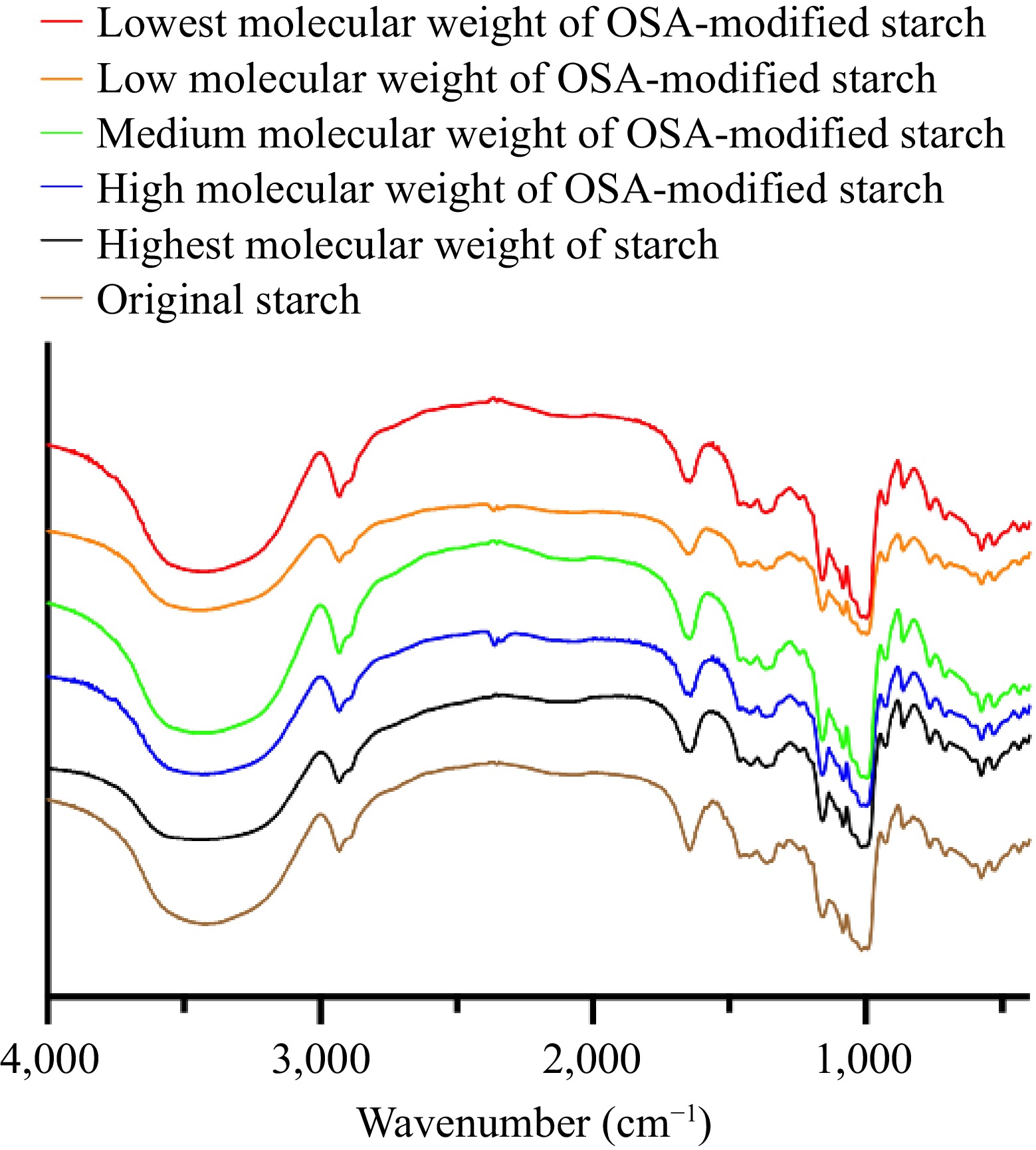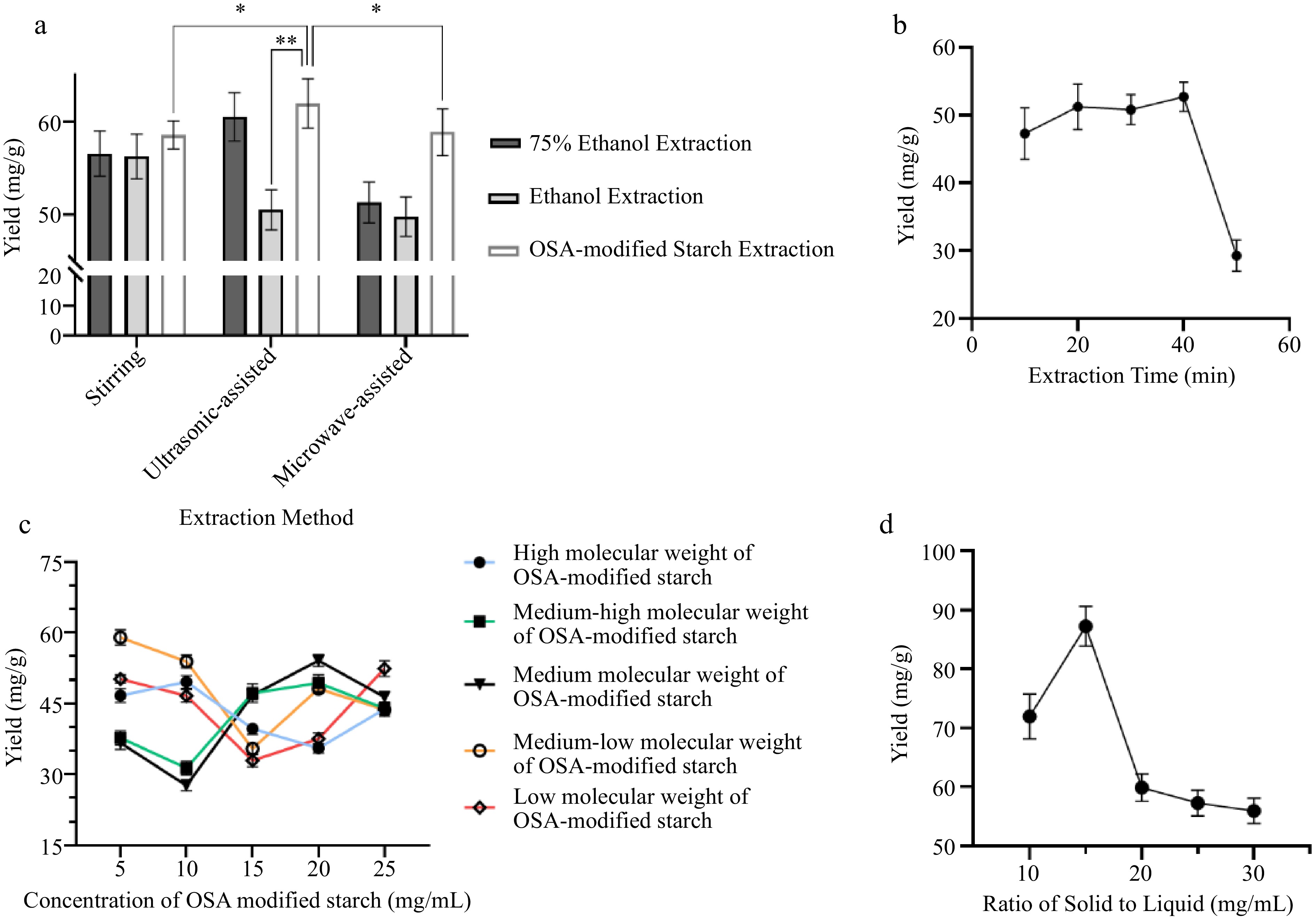-

Figure 1.
FT-IR spectra of different molecular weights of OSA-modified starches.
-

Figure 2.
Optimization results of extraction factors (extraction time, extraction method, ratio of solid to liquid, different molecular weights of OSA-modified starches).
-
Extraction methods* Factors in the extraction process** Stirring Ultrasonic-assisted extraction Microwave-assisted extraction Extraction time (min) Ratio of solid to liquid (mg/mL) Concentration of OSA-modified starch (mg/mL) Indicators and their values Stirring speed:
500 r/min;
Extraction time:
40 minUltrasonic intensity:
1000 W;
Extraction time:
40 minMicrowave intensity:
1,000 W;
Extraction time:
5 min10 10 5 20 15 10 30 20 15 40 25 20 50 30 25 * The experiments were designed by the single-factor method and replicated three times; the extraction was carried out with the medium molecular weight OSA-modified starch solution (15 mg/mL) and a solid-liquid ratio of 20 mg/mL. ** The single-factor experiments were used under optimal extraction conditions. Medium molecular weight of OSA-modified starch was used. One of the variables was optimized, and the others were constant. Table 1.
Optimization factors and indicators of the extraction process.
-
Sample Molecular weight (104 Da) DS (×103) Viscosity (Pa·s) Hst-OSAS 20.00 2.49 1.196 H-OSAS 12.51 2.51 0.921 M-OSAS 9.25 2.53 0.528 L-OSAS 2.34 2.57 0.444 Lst-OSAS 1.61 2.60 0.386 Notation of the molecular weight was as follows: Hst-OSAS, highest molecular weight OSA-modified starch; H-OSAS, high molecular weight OSA-modified starch; M-OSAS, medium molecular weight OSA-modified starch; L-OSAS, low molecular weight OSA-modified starch; Lst-OSAS, lowest molecular weight OSA-modified starch. Table 2.
Molecular weights, degree of substitution, and viscosity of OSA-modified starches.
-
Sample DPPH radical scavenging activity (%) Equivalent to Trolox (μM)** Equivalent to FeSO4
(mM)Hst-OSAS 11.41 ± 0.77a 885.72 ± 3.21a 1.460 ± 0.048a H-OSAS 23.70 ± 3.43b 888.94 ± 8.32a 1.515 ± 0.026b M-OSAS 33.63 ± 0.45c 896.20 ± 9.86b 1.615 ± 0.067c L-OSAS 54.84 ± 4.94d 895.06 ± 8.63b 1.497 ± 0.034d Lst-OSAS 55.47 ± 3.85d 889.43 ± 7.92a 1.382 ± 0.018e * Each experiment was repeated three times and expressed as mean ± SD. Different letters in the same column represent a significant difference between the two groups of data (p < 0.05). ** Trolox, a water-soluble analog of vitamin E, is used as a control antioxidant standard. Table 3.
In vitro antioxidant results of extraction solution.*
Figures
(2)
Tables
(3)